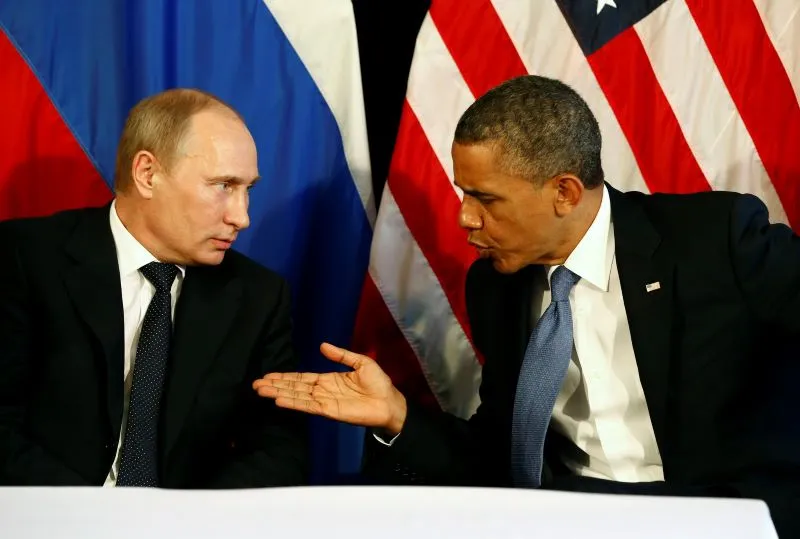-
CENTRES
Progammes & Centres
Location
Ten years later, it is clear that the Syrian people on all sides lost the war — but Russia won on all fronts.

Ten years ago, Syrians decided to march on the streets and ushered in the Syrian chapter of the Arab Spring. They protested against the political repression that had become a norm under the Baath party, but also demanded jobs, an end to corruption, and better lives.
A decade later, half of Syria’s population is displaced, the economic crisis is at its worst, large swathes of the country have been destroyed, and the country is split. While the Syrian government has reclaimed large parts of the rebel-held territory, the northwest remains under the control of Islamist rebels and the northeast is under America’s local allies — the Syrian Democratic Forces (SDF) dominated by the Kurdish forces.
Western countries, at first, anticipated that the Syrian people might overthrow the government as had been witnessed in Tunisia and Egypt. Countries like India in the east, however, were more circumspect and measured in their analysis.
“The army backs him to the hilt,” a senior officer with RAW, India’s external intelligence agency, said about Assad’scurrent position. “Russia can’t and won’t let Assad fall,” he noted presciently. Putin did intervene militarily in Syria in 2015 on Assad’s behalf and turned the tide of the war in favour of the stumbling president.
The meetings where the fateful decision was made were held in Moscow in July that year. The visiting Syrian delegation stayed at the presidential hotel; the same place was also hosting the BRICS civic forum at the time.
During the visit, the author of this blog was part of the Indian delegation to the forum. She had met an American diplomat and asked him whether Obama had decided to gift Syria to Russia. He reiterated what others had told her before — Syria is too far away from the US and does not present a security threat to the American people. “What's our interest in Syria?” he asked rhetorically.
America’s retreat from the Middle East proved to be just as responsible for Assad’s victory in the war as Russia’s military intervention. President Obama inherited his predecessor Bush’s forever wars in Afghanistan and Iraq and had promised to end those, not enter new conflicts.
In August 2012, when Obama was asked what could persuade him to use military force in Syria, he said he drew a red line at Assad’s use of chemical weapons. And yet when Assad was accused of using chemical weapons in Ghouta, near Damascus, in August 2013, Obama did not adhere to his own ultimatum.
A month later, Obama worked out a deal with Putin in a private conversation under which Russia was meant to ensure the destruction of Syria’s chemical weapons. But the Assad government was repeatedly accused of launching more chemical attacks against the civilian population even after Russia had supposedly gotten hold of and destroyed the stockpiles.
Trump, too, campaigned against American boots on the ground in wars in the Middle East. Just to spite Obama and seem superior, he ordered a few strikes on Syrian targets when the Syrian government was accused of a chemical attack in Khan Sheikhoun near Turkey’s border in 2018. However, Trump’s tenure was obsessed with containing Iran and not halting Russia in the region.
Joe Biden, the new American president, seems even more disinterested in Syria than his predecessors. His top concern is vaccinating Americans against COVID-19 and reviving the American economy. He has made it clear that China, not the Middle East, is going to be his priority in foreign affairs.
Assad’s supporters, like Russia and the United Arab Emirates (UAE), hope that Biden might repeal sectoral sanctions against Syria and open the possibility of rebuilding the country. But many experts, even those who oppose sanctions for their debilitating impact on an innocent population, say that Biden must choose a more pragmatic approach that allows a stage-wise reconstruction of the country. They argue that the US must only allow for funds to flow to Syria in exchange for political and economic reforms.
If that happens, Russia will reap economic rewards for its military engagement that, in the first place, was made possible because of America’s retreat. In short, Russia has benefitted the most from the Syrian war since Obama’s reticence to intervene militarily. It made room for Moscow in the region and gave it a foothold in the Mediterranean. Obama’s failure to stick to his redline proved America’s disinterest and worked as a signal to Putin and Assad that they could do whatever they felt like. Then the exodus of refugees led to the rise of right-wing parties in Europe — almost all of whom are friendlier with Russia. Finally, Trump’s obsession with Iran in the Middle East made it easier for Russia to retain more influence over Assad. Biden’s pragmatic Syria policy means Russia’s presence and expansion in the region won’t be challenged.
Ten years later, it is clear that the Syrian people on all sides lost the war. But Russia won on all fronts — militarily, strategically, and, in time, perhaps, even economically, as and when it plays a role in rebuilding a country that its own bombs destroyed.
The views expressed above belong to the author(s). ORF research and analyses now available on Telegram! Click here to access our curated content — blogs, longforms and interviews.

Anchal Vohra was a Fellow at ORF. She writes on contemporary developments in West Asia and on foreign policy.
Read More +